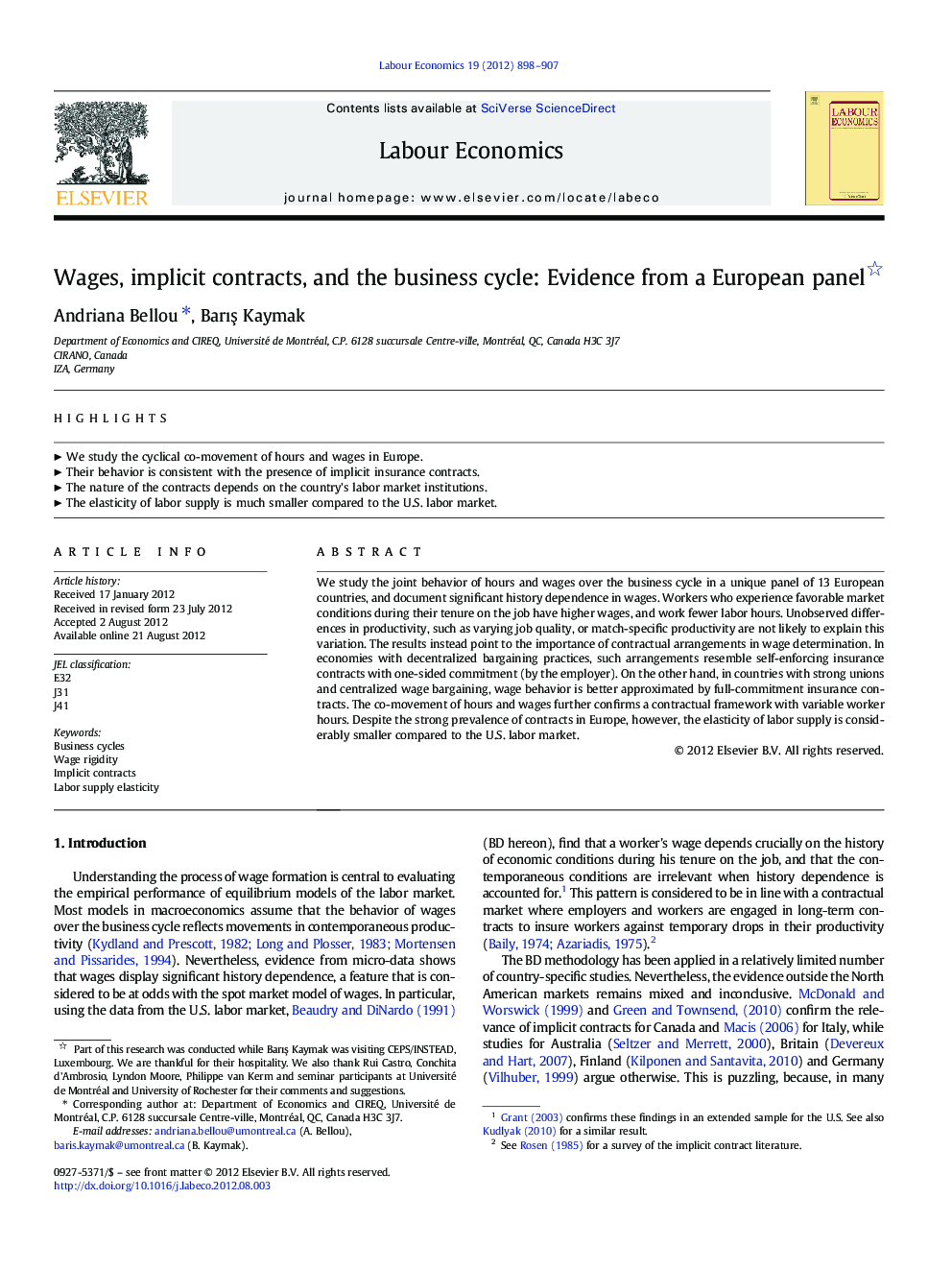| کد مقاله | کد نشریه | سال انتشار | مقاله انگلیسی | نسخه تمام متن |
|---|---|---|---|---|
| 971526 | 932349 | 2012 | 10 صفحه PDF | دانلود رایگان |

We study the joint behavior of hours and wages over the business cycle in a unique panel of 13 European countries, and document significant history dependence in wages. Workers who experience favorable market conditions during their tenure on the job have higher wages, and work fewer labor hours. Unobserved differences in productivity, such as varying job quality, or match-specific productivity are not likely to explain this variation. The results instead point to the importance of contractual arrangements in wage determination. In economies with decentralized bargaining practices, such arrangements resemble self-enforcing insurance contracts with one-sided commitment (by the employer). On the other hand, in countries with strong unions and centralized wage bargaining, wage behavior is better approximated by full-commitment insurance contracts. The co-movement of hours and wages further confirms a contractual framework with variable worker hours. Despite the strong prevalence of contracts in Europe, however, the elasticity of labor supply is considerably smaller compared to the U.S. labor market.
► We study the cyclical co-movement of hours and wages in Europe.
► Their behavior is consistent with the presence of implicit insurance contracts.
► The nature of the contracts depends on the country's labor market institutions.
► The elasticity of labor supply is much smaller compared to the U.S. labor market.
Journal: Labour Economics - Volume 19, Issue 6, December 2012, Pages 898–907